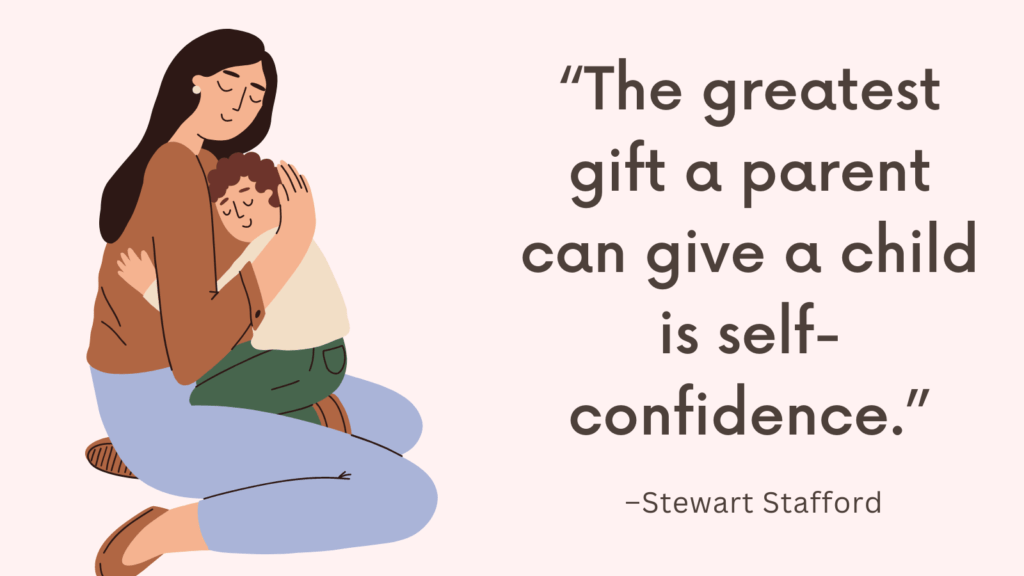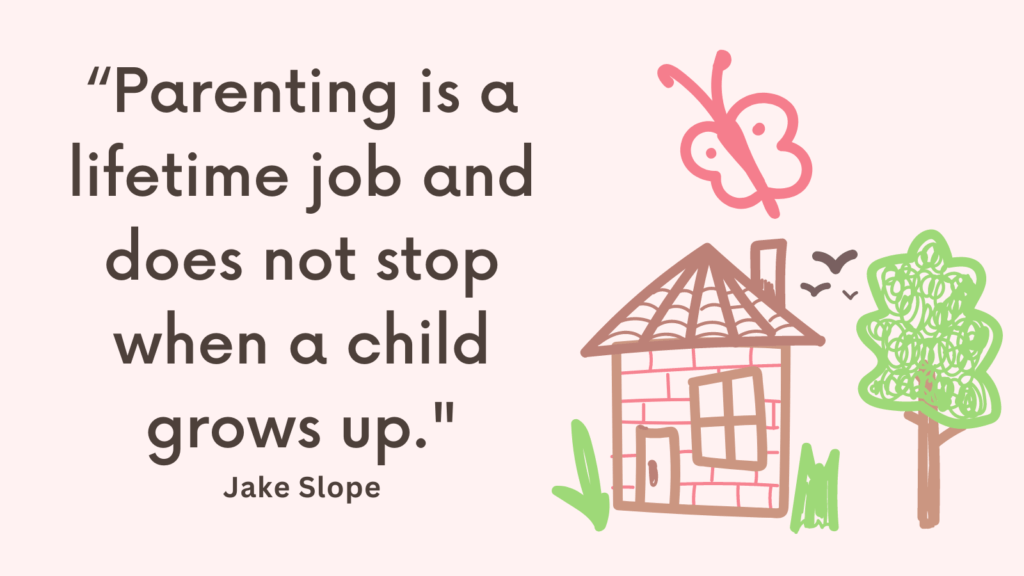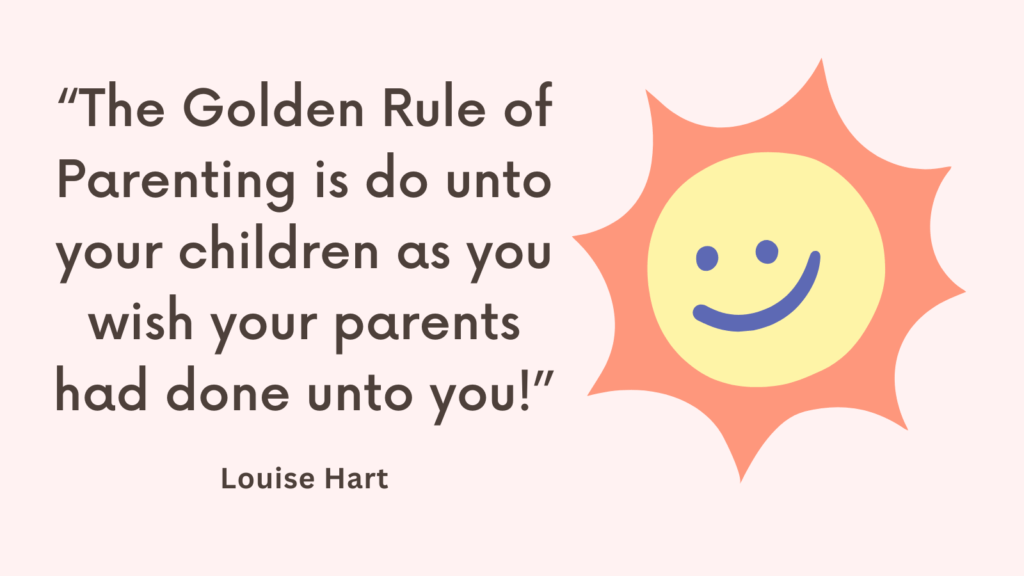In this post, you’ll learn all about helicopter parenting – pros and cons and ways to avoid helicopter parenting.
What Is Helicopter Parenting?
Helicopter parenting (also called hovering parenting) is a type of parenting style where the parent tends to be overly involved in their child’s life.
They are constantly hovering around, monitoring every aspect of their child’s behavior, activities, and decisions.
This type of parenting often stems from a desire to protect the child and ensure their success, but it can also lead to a lack of independence and decision-making skills in the child.
Helicopter parents may also struggle with letting their children fail or face challenges, as they want to shield them from any negative experiences.
Related: Am I A Helicopter Parent Quiz
How Helicopter Parenting Has Become A Prevalent Issue In Modern Society
Helicopter parenting is a style of parenting has become prevalent in modern society due to various factors.
Firstly, the rise of technology has made it easier for parents to constantly monitor their children’s activities and whereabouts.
With cell phones, GPS tracking devices and social media monitoring apps, parents can keep constant tabs on their children, giving them a false sense of security.
Secondly, the increasing competitiveness of modern society has led many parents to believe that they need to be more involved in their children’s lives to ensure their success.
This pressure has led to many parents micromanaging their children’s academic pursuits, extracurricular activities, and social lives, leading to a lack of independence and self-reliance in their children.
Thirdly, the fear of harm or danger has also led to helicopter parenting.
Parents are bombarded with messages of potential dangers in the world, leading them to believe that they must protect their children at all costs.
This fear has resulted in many parents not wanting to give their children any freedom, even in situations where it may be beneficial for their development.
While helicopter parenting may come from a place of love and concern, it can also have negative consequences for children. (source)
Related: Best 12 Growth Mindset Books
Helicopter Parenting: Pros and Cons
The Pros of Helicopter Parenting
1. Increased safety and protection
Helicopter parenting can provide a high level of security for children. It ensures that parents are aware of their child’s whereabouts and safety at all times.
2. Lower risk-taking behavior
Children who are under close supervision are less likely to engage in dangerous or risky activities.
3. Prevention of negative influences
Helicopter parents can filter out potentially negative influences from their child’s life, such as harmful media or toxic friendships.
4. Close parent-child relationship
Helicopter parenting can create a strong bond between parents and children, as they spend a lot of time together.
5. Preparedness for adulthood
Helicopter parents can equip their children with essential life skills, such as financial management and cooking, before they leave the nest.
6. Development of good habits
Helicopter parents can instill good habits in their children from an early age, such as keeping a tidy room or doing homework every day.
7. Enhanced communication skills
Helicopter parenting encourages open communication between parents and children, which can promote healthy emotional development.
Helicopter parenting may offer some benefits, but they tend to be short-term ones. This parenting style often results in negative long-term effects.
Related: Top 12 Benefits of Stay At Home Mom
Cons of Helicopter Parenting
1. Over-dependence
Children who are constantly micromanaged may develop a sense of over-dependence on their parents.
Helicopter parenting can stifle a child’s sense of independence and autonomy, leading to difficulties in making decisions for themselves. (source)
2. Limited problem-solving skills
Children who are constantly rescued by their parents may not learn how to effectively solve problems on their own. (source)
3. Anxiety and stress
Overprotected children may become anxious and overly fearful due to their parents’ over-involvement. (source)
Parents can become overwhelmed with worry, while children may feel pressure to meet their parents’ expectations.
5. Low self-esteem
Some children may feel like they cannot do anything right without their parents’ intervention, leading to low self-esteem as they grow older. (source)
6. Poor decision-making skills
When parents make all the decisions for their children, kids may struggle with decision-making skills later in life. (source)
7. Lack of resilience
Without experiencing failure or setbacks, children may not develop resilience or the ability to bounce back from difficult situations. (source)
8. Limited social skills
Helicopter parenting can limit children’s opportunities to practice socializing and building relationships on their own. (source)
9. Uncertainty about career choices
Children with helicopter parents can experience significantly lower levels of career adaptability and higher levels of career self doubt. (source)
10. Strained family relationships
Helicopter parenting can strain family relationships, leading to conflicts and resentment between parents and children.
Related: Best 10 Books About Empty Nest
Alternative Parenting Styles That Promote Healthy Growth And Independence In Children
There are four main types of parenting styles that are often referenced in the field of psychology: authoritarian, authoritative, permissive, and neglectful.(source)
1. Authoritarian: This style of parenting is often strict and places a lot of emphasis on obedience and discipline. Parents who use this style tend to enforce rules with harsh punishments and may not be very open to discussion or negotiation with their children.
2. Authoritative: This parenting style is characterized by clear rules and expectations, but also includes warmth, support, and open communication. Parents who use this style set high standards for their children, but also provide them with the tools and guidance to meet those standards.
3. Permissive: This parenting style tends to be more relaxed and laissez-faire. Parents who use this style may struggle with setting boundaries and enforcing consequences, and may prioritize their child’s happiness over discipline or structure.
4. Neglectful: This parenting style involves little to no involvement or interaction from parents with their children. Children in neglectful households may not have their basic needs met, such as food, clothing, or emotional support.
The American Academy of Pediatrics recommends an authoritative parenting style that combines setting consistent boundaries and expectations combined with being nurturing and responsive. (source)
Overall, it’s important to find a balance between providing support and guidance, and allowing your child to take risks, learn from their mistakes, and develop independence.
How To Avoid Helicopter Parenting?
Here are some tips to avoid helicopter parenting:
#1. Set Realistic Expectations
One way to avoid helicopter parenting is to set realistic expectations for your child.
It’s important to understand that your child is not perfect and will make mistakes, just like everyone else.
Set goals and expectations that are challenging but attainable so that your child can develop a healthy sense of independence and self-esteem.
Additionally, it’s important to be aware of your own expectations and values. It’s natural to want your child to succeed, but it’s important to remember that success can come in many forms.
Encourage your child to pursue their own interests and passions, rather than forcing them down a certain path.
Remember to praise effort and progress, rather than just focusing on the end result. This can help your child develop a growth mindset and feel more confident in their abilities.
#2. Allow Autonomy
To avoid helicopter parenting, it’s important to allow your child autonomy.
This means giving them space to make their own decisions and solve problems on their own.
Encourage your child to try new things and take calculated risks, even if it means they might fail.
Resist the urge to constantly check in or hover over your child. Give them space to explore and figure things out on their own.
#3. Encourage Independence
Teach your child basic life skills like cooking, cleaning, and doing laundry. This will prepare them for life outside the home and help them become more self-sufficient.
Provide guidance, not control. Help them navigate challenges and make decisions, but ultimately let them take ownership of their own lives.
Related: Best 10 Self Help Books For Teens
#4. Promote Problem-Solving
One way to avoid helicopter parenting is to promote problem-solving skills in your child.
This means encouraging them to find solutions to their own problems, rather than constantly stepping in to solve them for them.
Allow your child to do things on their own, even if they might struggle at first. This will give them the opportunity to problem-solve and figure things out for themselves.
While it’s important for your child to learn to solve problems on their own, it’s also important for them to know when to ask for help. Encourage them to seek guidance from a teacher, coach, or other trusted adult when needed.
#5. Let Your Child Fail
Failure is a natural part of life, and it helps children learn valuable lessons about perseverance, resilience, and problem-solving.
Instead of swooping in to solve every problem or prevent every mistake, let your child figure things out for themselves.
This doesn’t mean that you should step back completely and let them face dangerous situations alone.
But giving them enough space to make mistakes and learn from them is crucial in helping them develop independence and self-reliance.
As a parent, support your child through difficult times and offer guidance when needed instead of taking over and doing everything for them.
Remember that failure is not always a bad thing and can be an important step in building character and growth.
#6. Foster Resilience
Resilience is the ability to bounce back after facing challenging situations, and it is an important skill that all children need to develop.
Teach your child coping skills like deep breathing, mindfulness, and positive self-talk to help them manage stress and anxiety.
Encourage your child to see challenges as opportunities for growth and learning rather than failures.
#7. Respect Boundaries
Be mindful of your child’s need for privacy and allow them to have space as they grow.
Knock before entering their room or bathroom, and avoid reading their private messages or diary without permission.
Don’t constantly monitor your child’s activities. Trust that they are capable of making smart choices and use your influence to guide them if they need it.
Avoid intervening in conflicts between your child and their peers. Let them handle the situation and only step in if necessary.
Remember, respecting your child’s boundaries will not only help them develop into independent and responsible individuals, but also strengthen your relationship with them.
#8. Provide Guidance
Providing guidance is an important aspect of parenting.
However, it’s crucial to ensure that you are providing guidance rather than controlling your child’s every move.
Instead of telling your child what to do, ask questions that will guide them towards making their own decision.
Let your child know that you are always there for them if they need your guidance or support.
Remember, your role as a parent is to prepare your child for adulthood, which means giving them the skills and tools they need to make good decisions on their own.
Conclusion
Helicopter parenting is a style of parenting in which parents excessively intervene and control their children’s lives, often to the detriment of their children’s independence, self-confidence and competency.
While it’s important for parents to be involved in their children’s lives, it’s equally important to give them space and allow them to learn and grow on their own.
Avoiding helicopter parenting can help children develop into independent, self-reliant and resilient adults.




